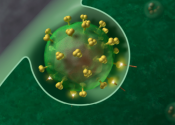Arts-based groups benefit individuals with mental health conditions
A new study found that participation in arts-based groups—such as those that involve choir singing and creative writing—benefits the emotions of both healthy adults and those experiencing mental health conditions.
Jul 19, 2017
0
4






